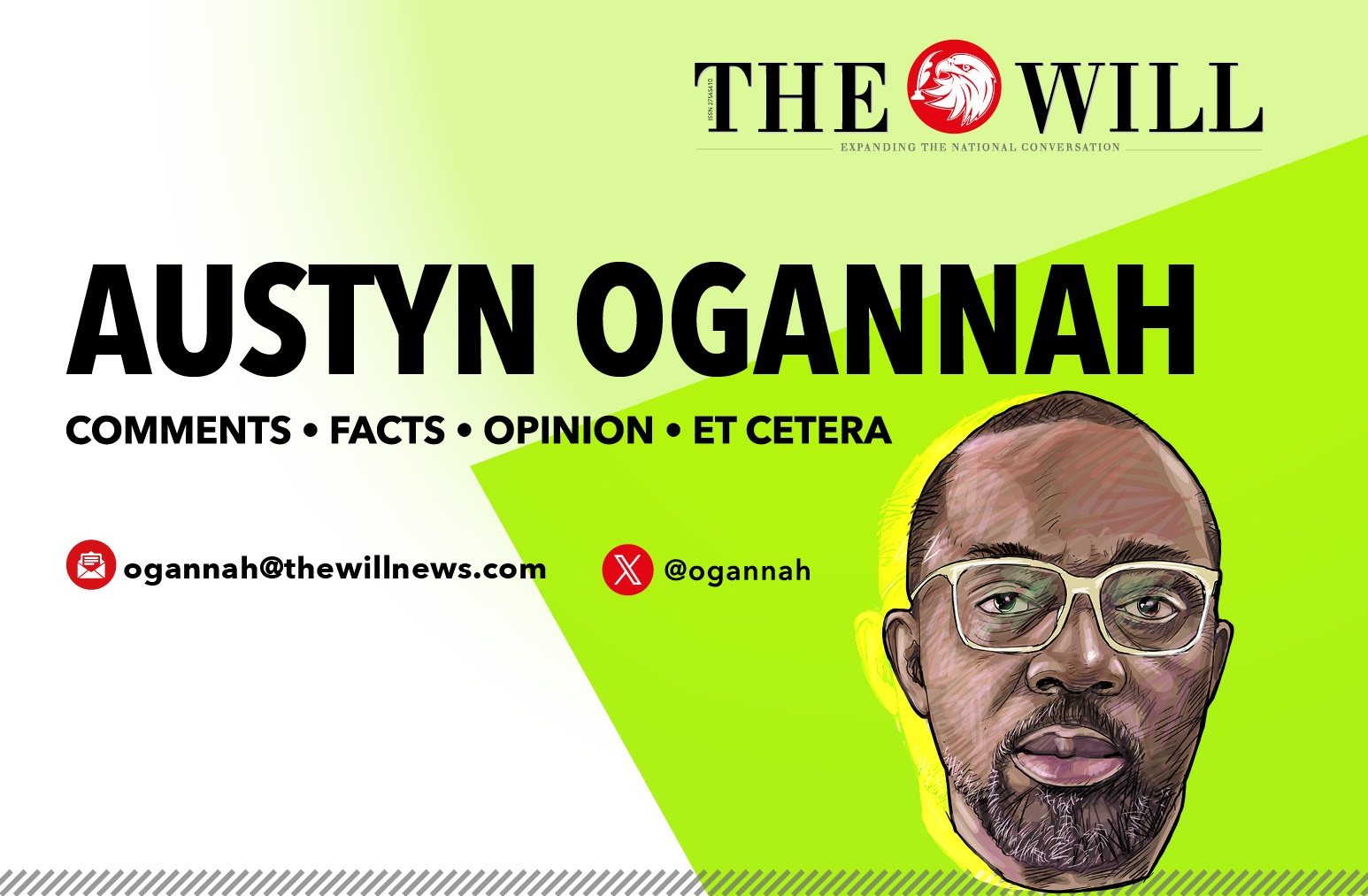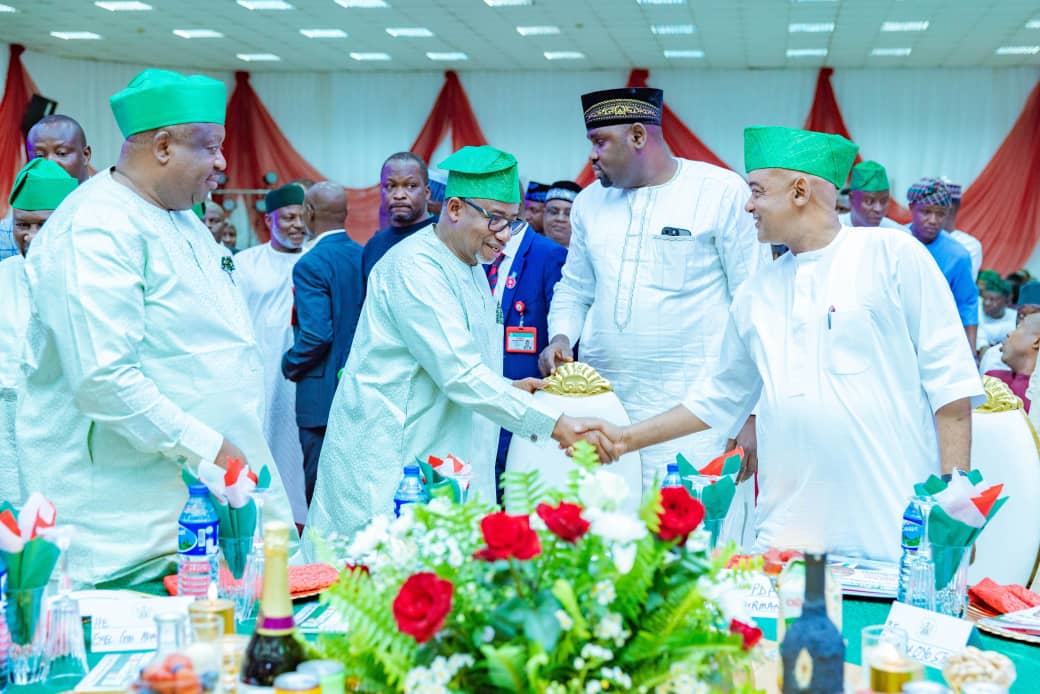November 24, (THEWILL) – Serial entrepreneur and social media advocate, Bodex Hungbo speaks with IVORY UKONU about one of her initiatives, Bodex Social Media Hangout and some of the things that have shaped her outlook on life. Excerpts:
What is Bodex Social Media Hangout all about?
It is a platform where we bring social and digital media practitioners, including the traditional print and broadcast media and stakeholders, together to learn more about the social media and how it can be correctly applied for social good, self-development and nation building. In Nigeria, there is so much conflict between the media and stakeholders like the Federal Government, state governments, corporate bodies, prominent individuals, etc.
So, I thought of how I could be of help in this regard, using my media background to bring everyone together so that way, the stakeholders can outline their challenges, the media practitioners can outline theirs too and then we can find a common ground to resolve some of these conflicts. Because the truth of the matter is that we all cannot exist without each other.
We tell our own stories in a different way, most times, highlighting the negatives over the positives, making non-Nigerians think that Nigeria is the worst place on earth, not knowing that it is because of our wrong use of social media that is exposing foreigners to such narratives. I created the platform so that we can learn to tell our own stories better so that foreigners can better view us and the country in a more positive light. The project is about the media selling Nigeria and selling Nigerians positively because without us there is no Nigeria and without Nigeria there is no us.
You may think it is the job of the government to sell Nigeria positively, but remember they are not media practitioners who know better the power of the pen and in this case, the power of social media. This is one of the reasons governments set up media teams once they get into power so that professionals can help craft a positive narrative not only around their principals, but about their states and ultimately, the country, which is then sold to the outside world.
What are these conflicts between media practitioners and stakeholders?
The media can be brutal about the way they write about stakeholders – scandals, rumours, lack of proper investigations and the likes. Not only does it make them keep their distance from the media and over time, they begin to have little or no regard for the media. It also sends a negative signal to people who are closely following events in Nigeria. Yes, there is freedom of speech and everyone is free to write as they please. But that is no excuse to go overboard and throw decency or decorum out the window. Anything you write or comment on, remember the Internet doesn’t forget and it haunts people. On the part of the stakeholders, I will say, they should be more careful in their dealings in order not to project a contrary image than what they hoped to project.
It’s the fifth anniversary of the media hangout this year. What is significant about it?
It is not easy to do an event in Nigeria and successfully so for that matter. We have done four editions successfully aside the year 2020 which we missed because of COVID-19. So, I think the fifth anniversary is worth celebrating because a lot of people started some good initiatives, but today, they have packed up because of the economy. Here we are still standing because not only do I have the passion for this, but also I have been lucky to attract people who truly understand what the social media hangout is all about and the power of social media.
What informed the theme for this year’s hangout, ‘Social Media: The Power, The Impact, The Influence’?
This year, we have had a lot of positive impacts via social media. From somebody dancing to an old school song and in the process, raising unprecedented awareness of both the song and the composer, so much that the composer who was living in near penury now lives a relatively comfortable life. We now have a lot of influencers who genuinely use their platform to help people and raise awareness of good causes. Some even go as far as opening gofund me accounts for people who need urgent help. These are positive impacts made by social media influencers ranging from content creators to entertainers and social advocates – basically whoever has a large followership and uses his or her platform positively or negatively such that they are able to sway their followers. These people have a voice and they need to understand the power of how they can use their voice to influence positively.
Who are the speakers for this year?
The Executive Governor of Lagos State, Babajide Sanwo-Olu, and many social media influencers. This year’s event will be hosted by Frank Edoho. It’s an open affair for everyone.
What is the ultimate goal with these annual hangouts?
We have over 200 million Nigerians and not everyone will change overnight and align with the positive use of social media. It is a gradual process and with each annual hangout, we keep getting closer to our goal. At the hangout we also teach participants how to make money on social media instead of wasting their time and energy being a troll or constituting themselves into nuisances. Before long and sub -consciously, people will start knowing how to use social media for social good, awareness and development. We also plan to do a social and digital media school tour. You know there is an adage that says you have to catch them young that way it is embedded in their subconscious, and they grow into adulthood with that mentality to always push for the positive side of the social media.
How challenging has it been keeping the hangouts running for this number of years?
The thing with being in Nigeria is that once you have a dream or vision, no one will want to roll with you until you get started and achieve an appreciable level of success. It happens elsewhere too, but it is worse in Nigeria because we do not believe in ourselves. This is unlike abroad where if you conceive an idea and discuss with one or two people, companies who see where you are going are already keying into your vision. So, yes, it has been extremely challenging keeping it running every year and getting sponsorship is a herculean task. The first and second editions were done with my own money. I run about eight different companies. So, what I do is that at the end of each year’s hangout, I start to save some percentage of money from these other companies that I run, just in case I am unable to get sponsorship for the next hangout or what I get isn’t enough. That being said, I now get sponsorship from the Lagos State Government. Every year, I get a different commercial bank to come on board and what they give is a token. I also get little support from a few friends who like the idea of what the social media hangout is all about. It’s also very challenging trying to bring both the traditional and online media together for the hangouts. Many of them are sceptical and some just assume that I collect huge amounts of money from organisations, though the reverse is the case. But it has been an interesting journey so far.
What would you say has been your greatest achievement since you started this journey?
I was invited by the University of Georgia in the United States to give a talk in Kenya about the impact of Bodex Social Media Hangout. I did a course at the university, Civic Engagement and part of my project was on my event and that was how I got invited to speak at the event, on an all-expense paid trip. Another achievement is that the event won an international award as the best digital media platform in Africa. The event has also won some local awards as well.
How did you conceive this idea of a social media hangout in the first place?
I relocated to the United States on two different occasions. The last time I did was in 2017. While I was there, I was trying to start my online television, Bodex TV, but I soon realized that it was a tall order for me to think that it would be easy to get someone like, say, a Cardi B or a Beyonce to interview on Bodex TV. It’s not that it isn’t achievable, but it will take me years of building myself to get to a particular stage such that they will be able to identify with me and easily accept to be featured on my online TV. Then in 2019, I suddenly remembered that I was once a public relations consultant to a Nigerian president, and I already had some bit of media strength. I looked around the media in Nigeria and that was when I realized there is no love lost between the media and stakeholders. The idea began to brew and I decided to come back home to kick start it. It was something I knew I could easily do if I was outside the shores of the country, but I needed to get it started back home and grow it to the point where I will attract international recognition. In September of 2019, I returned to Nigeria and held the first edition in November of that same year.
Do you have any regrets with your reverse japa?
I don’t and I also do not regret leaving Nigeria all the times I did. I just realised when I got to the US that it would take me a longer time to achieve my dreams since I didn’t have my foundation there unlike in Nigeria where I grew up and already had some businesses up and running before travelling out. But today, I run my businesses in both countries. Relocating in the first place was because I wanted a saner place to operate in.
You studied Industrial Chemistry in school. How did you now find yourself in the media space?
I actually wanted to study Mass Communication, but my late father wanted me to be a science student. After I graduated, I gave him the certificate and went in search of my own happiness. I got a post graduate diploma and a Master’s degree in Mass Communication. In all of the places I worked in shortly after my graduation, I was always somehow drafted into things that had to do with the media or entertainment. From Nigerian National Petroleum Corporation, NNPC to MTN to Global Fleet oil and Gas. And I enjoyed those assignments. While I worked in Global Fleet Oil and Gas as Senator Jimoh Ibrahim’s personal assistant and secretary, I was running a personal lifestyle blog on the side, just uploading pictures of myself doing basic everyday things either at work or outside work. I was doing that just to satisfy myself, not even to make money but people were hooked on the updates. I didn’t know that there were some key people who were following the blog. So, when a president was looking for a blogger to consult for the 2015 general election, my name came up and that was how it started.
Your name is quite unusual. Did your parents name you Bodex?
I am from Badagry in Lagos State and my parents named me Whenume which means Bodunrin in Yoruba language because I was born on the 27th of December. So Bodex is from Bodunrin. Over the years, people have always called me Bodex so all my documents now bear Bodex.
Would you say that you are fulfilled with regards to the hangout?
Extremely. I live and breathe Bodex Social Media Hangout. I do it effortlessly like the air I breathe.
Earlier, you said you run about eight companies
Yes, but they are not all media related though. I have a food mart, I make shoes, I have a printing press, I have a delivery company, an online TV, a news blog that strictly promotes Nigerians and Nigeria, among several others. All of them I run under Bodex Group International.
Why shoe making?
I started making shoes out of depression. I had made some deals that failed and that plunged me into depression. I almost committed suicide. It was while driving to Third Mainland Bridge that I made a detour and drove to Ajegunle where I saw someone making shoes and I told him to teach me how to make shoes. Today he works for me. I then travelled to the United State to learn more on shoe making and later went to Turkey to acquire additional knowledge. So I would make some samples and send them to some state governors. Some will get back to me and that is how I ended up making shoes for former minister for Interior, Rauf Aregbesola, former Ogun State governor, Otunba Gbenga Daniel, Lagos State governor, Babajide Sanwo-Olu, the Ooni of Ife, Oba Adeyeye Enitan Ogunwusi and a whole lot more.
Don’t you make shoes for women?
I do but I prefer to make for men because they do not stress me and they are my major clients. When I make shoes for them, they will now commission me to make for their wives.
Are they leather shoes?
Yes, pure leather shoes
How do you manage all of your businesses without any suffering?
My businesses are all interwoven. They are all on auto pilot because I started them myself before I began to employ people to handle the different aspects. So I can comfortably beat my chest that I can never be stranded if any of them decides to leave today.
What would you say must have shaped you to become who you are today?
The fear of poverty. The fact that I do not want to be at the mercy of anybody. I come from a very rich but polygamous family. Growing up was supposed to be fun, but it wasn’t because I was always at the receiving end. I always wished to be richer than my father and to make judicious use of money unlike how he was spending his own money.
Why is that?
He only spent money on himself. As a socialite, he liked to dole out money to musicians who sang his praises at parties. He was also an artiste who travelled widely to perform so he was well exposed. I wasn’t really close to my father who, despite having so much money, sometimes found it difficult to pay my school fees. I hawked things for my mum, so she wouldn’t have to go ask my father for anything, seeing that he didn’t know it was his responsibility to take care of her.
All of these made me vow to become really independent by trying everything that I can possibly make money legitimately until I eventually strike ‘gold’.
What drives you?
Happiness. I am an extremely happy person. I don’t know what it means to be sad except I don’t have money. I also want to make an impact beyond what I am currently doing. I want to be able to step into a place and everyone will be like, ‘here comes Bodex with the solution.’ I also want to be able to make people know that love is greater than anything. You don’t need to hate on anyone.
How do you unwind?
My work is how I unwind. While I am working, I am having fun on the side.

 4 hours ago
4
4 hours ago
4
















